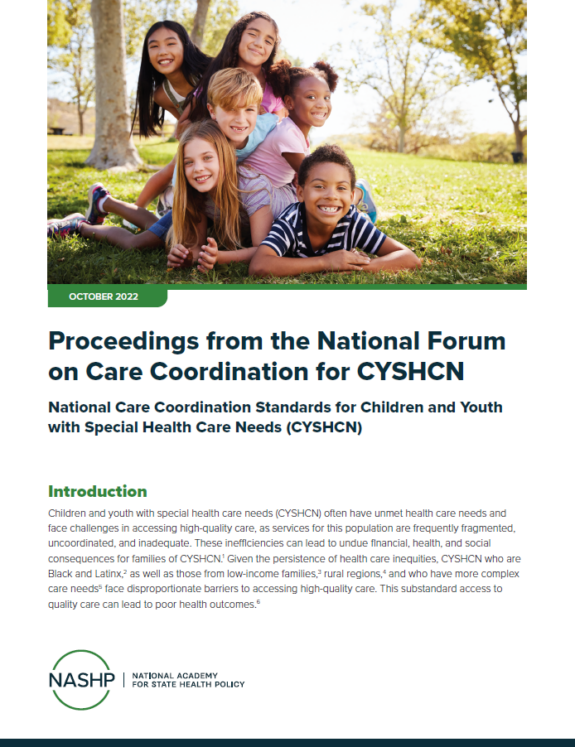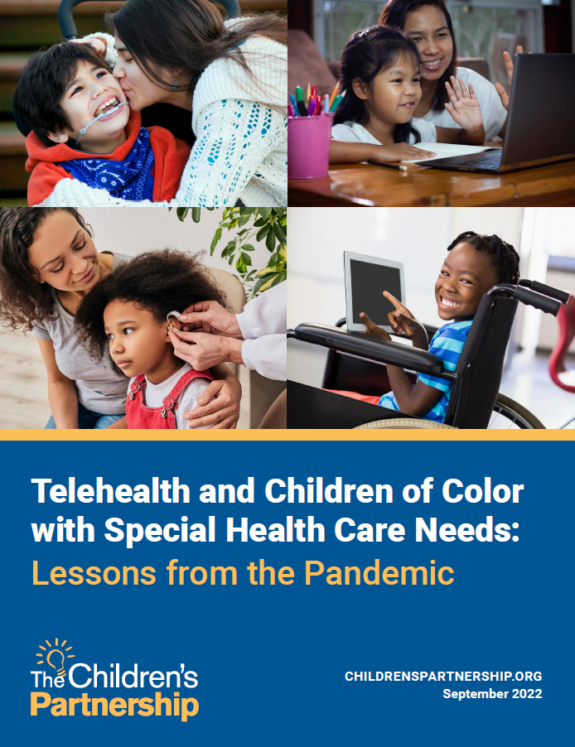Twenty-two years ago, my daughter Sarah was born with a rare genetic condition and my life was forever changed.
At first, like so many other families, I was lost learning a new language and, despite my background in health insurance, navigating our managed care plan. Years later, I was fortunate to work for the federal Maternal and Child Health Bureau and relied on my experiences as a parent to fund grants to improve the system of services for children and youth with special health care needs.
But inside, I always wanted to be an advocate, which has led me to my current position as Director of Strategic Partnerships for Family Voices.
Family Voices is a national nonprofit organization that works to keep families at the center of children’s health care. Founded in 1992, Family Voices has a network of incredible family leaders in State Affiliate Organizations and Family-to-Family Health Information Centers who, like me, use their experience to be the voice for families and youth.
Our state family leaders provide information, assistance, and support to families of children and youth with special health care needs or disabilities across a wide spectrum of diagnoses and health conditions. Youth leadership is encouraged through Kids As Self Advocates, a national youth self-advocacy project. We also monitor federal and state legislation and provide information to help families and family leaders understand and influence the legislative process and advocate at the state and national level for policies that support the complex needs and situations of families.
I am thrilled to be a part of Family Voices as we embark on our new campaign — One in Five — to raise awareness that one in five families with children have at least one child with special health care needs. A few weeks ago, we held our Power Of Partnerships Family Leadership Meeting in Washington, D.C. Wearing our One in Five buttons, we went to Capitol Hill to educate legislators about the impact of having a child with special health needs. Many were not fully aware of the stress families experience trying to meet the needs of their child in a maze of multiple and complex systems of care.
Family Voices also has strong partnerships with multiple professional groups and is working on a number of projects to promote quality family-centered care for children and youth with special needs. A few examples of our recent projects are as follows:
- The National Center for Family/Professional Partnerships increases the capacity of families, Title V and other providers to partner around full implementation of the Affordable Care Act (ACA); strengthen the primary care workforce through family/professional learning opportunities; and improve access to quality care and innovation in the areas of family-centered care, cultural and linguistic competence and shared decision-making.
- IMPACT (Improving Maternal and Child Health Policies so All Children with Thrive) focuses on health and wellness promotion for all children and youth, and offers information on a wide range of prevention topics. The project team worked with the American Academy of Pediatrics to develop English and Spanish versions of the Bright Futures Family Handbook.
- Engaging Native American and Spanish Speaking Families and Sharing Wisdom to Reduce Childhood Obesity is funded by the Patient Centered Outcomes Research Institute (PCORI). The project focuses on developing partnerships in Idaho and Washington States to empower Spanish speaking and Native American families and build a community interested in promoting research on childhood obesity. We will apply for multiple year funding with the intent to spread to other states across the country.
- Care Coordination Facilitation for Children and Youth with Special Health Care Needs in New Mexico is a partnership between the State Affiliate Organization in New Mexico, Parents Reaching Out, Blue Cross/Blue Shield of New Mexico and Family Voices. It has provided information to families from Native American communities across New Mexico to help them better understand and avail themselves of their care coordination options under the Affordable Care Act (ACA).
- The Family-Centered Care Assessment is a quality measurement tool that measures new content areas in decision-making interactions, family support, community services, and cultural competence. Family Voices is partnering with the AAP to test the tool in pediatric practices.
Every day, Family Voices is making a difference in the lives of these families. If you want more information on how you can be part of our growing organization and have an impact on One in Five families, go to www.familyvoices.org
photo credit: Lynda Honberg



